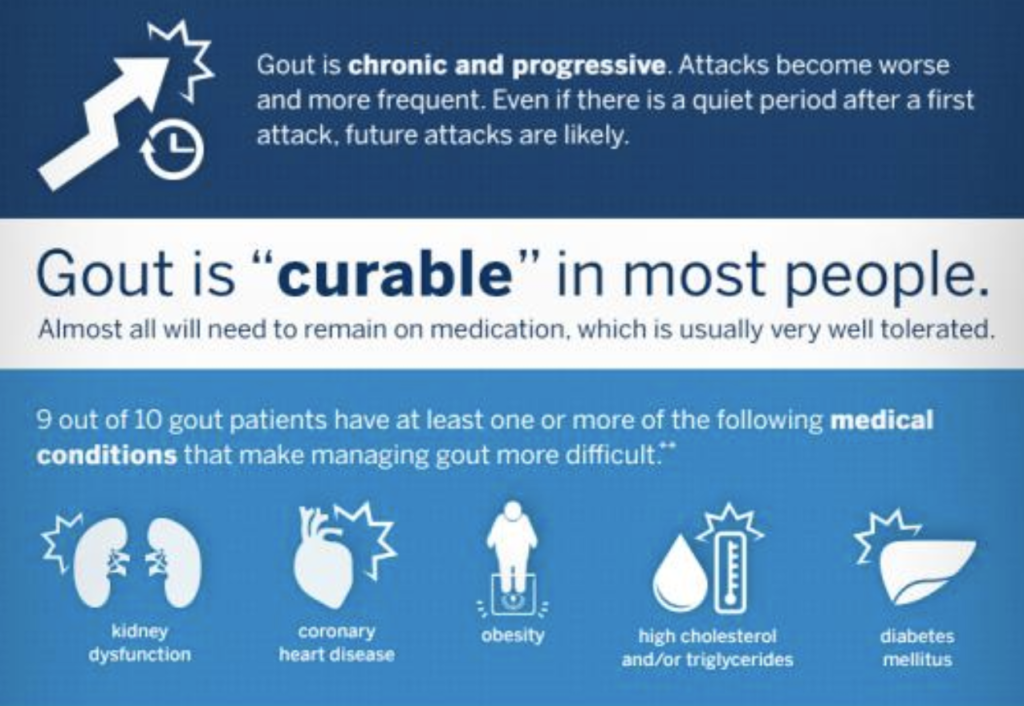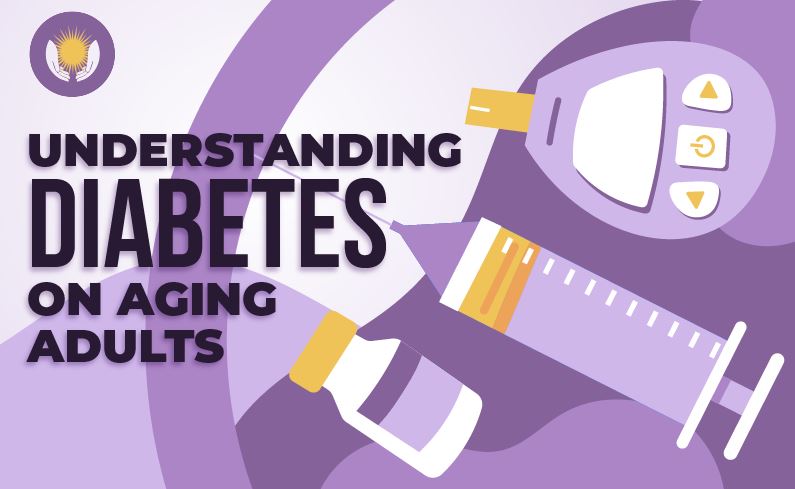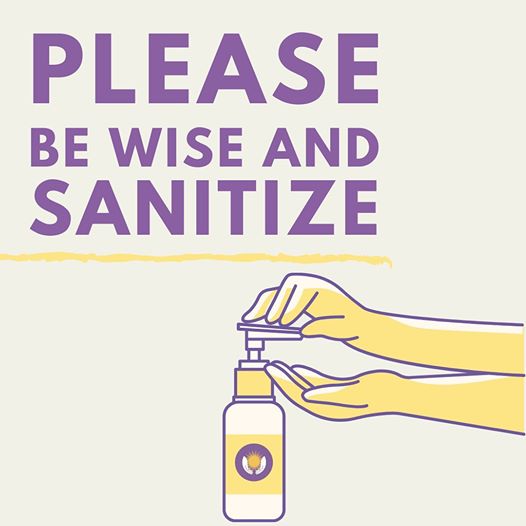Noticing Signs of Gout in Yourself or Loved One

Gout is a form of arthritis that forms in a joint with the buildup of uric acid in the body. When uric acid builds up in the joint, your body tries to fight it off, causing a painful buildup in the joint that will be more painful than you can imagine. Here are the 4 most common symptoms of gout, and what steps to take to avoid long-term effects.
Imagine waking up to a pain in your foot that swells, is hot, and painful to touch. Some can’t even stand to have the softest pressure of their bedsheet on it. Gout usually attacks the joint next to the big toe where it attaches to the foot and will make it extremely difficult to walk on for any patient.
What causes gout?
If you or your loved one has lived a healthy life and monitors the food you eat, you may not be at risk of developing gout, unless a member of your immediate family has suffered from it before. There are however some foods you should avoid that limit the production of purine in the body, which, when digested, produces uric acid:
- Red meat and organ meats (liver, tongue, and sweetbreads)
- Shellfish such as shrimp and lobster
- Refined carbohydrates (white bread, white rice, pasta, sugar)
- Processed foods (chips, snack foods, frozen dinners)
- Sugary beverages
Warning signs of gout
- Warmth, pain, and smell of the big toe joint.
- Intense pain that begins at night
- Increasing discomfort over a period of time
- Discoloration and/or redness
- Anytime you notice something on your body that is red and warmer than the skin around it, it may be the sign of gout or another infection, so be alert.
Next steps
For immediate relief, take an over the counter anti-inflammatory and see a doctor! Your first attack of gout might persist for 36 hours and then go away, yet more attacks may follow, which means that you should talk to your doctor about going on a specific medication to prevent attacks down the road. The most important step to take is to make some serious lifestyle changes and reassess your diet and other symptoms that led up to the attack.
Excessive amounts of sodium not only put you at risk for many health issues, but it can also affect your appearance as well. Eating too much sodium may cause increased water retention, leading to puffiness, bloating, and even weight gain.
Bottom line: too much sodium is bad for your health. Look for ways to reduce your sodium intake by cooking healthier meals at home and incorporating more fruits and veggies into your diet.



Comments